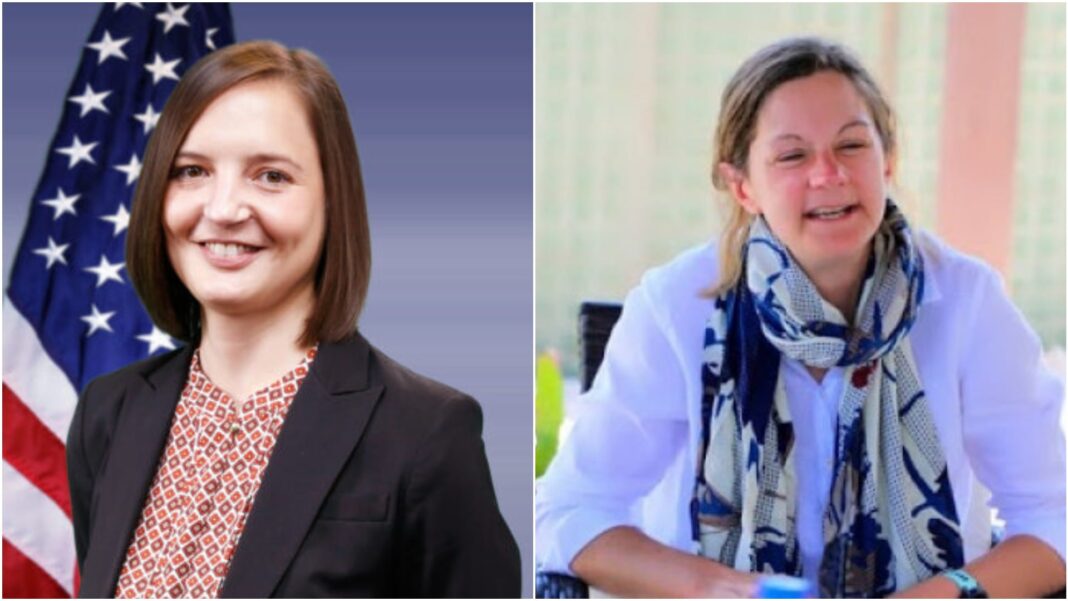The U.S. and British ambassadors to Somalia, Colleen Crenwelge and Kate Foster, have expressed disappointment over the failure to ensure the 30% quota for women in the recent elections of the Upper House of the Federal Parliament of Somalia.
Only 26% of the elected 54 lawmakers are women despite the National Consultative Council agreement to reserve at least 10 seats in the Upper House (Senate) and 83 seats in the House of the People for women.
“We were disappointed that the Upper House elections fell short of this important benchmark of 30% quota. But we hope that this quota will be ultimately met,” ambassador Crenwelge told reporters.
In a joint press conference on Tuesday, the U.S Charge’d’affairs Colleen Crenwelge and UK Ambassador Kate Foster both warned that the dispute over the election could lead to conflict in the country, which is not in the interest of the people of the fragile Somalia.
“We urge that any election related complaints and disputes be resolved through dialogue and peaceful way,” said Crenwelge.
The two Ambassadors stated that they had met with the Villa Somalia administration, the Office of the Prime Minister and the Union of Presidential Candidates and informed them to avoid violence and as they also urged to put the public interest before the politicians’ self-interests.
CONDITIONS FOR ELECTION FUNDING
The two Ambassadors reiterated that they had put conditions on an election funding request from the Somali Government seeking for $2.7 million, until election authorities were able to account for how they money is used. This includes compliance with state and federal Public Financial Management (PFM) Acts, all candidate fees are banked into the Treasury Single Account (TSA), with expenditure tracked on the Financial Management Information System (FMIS).
“We have made it clear and we have attached additional conditions for election funding. It is my responsibility as the UK ambassador to monitor and track the money we are paying and account for how it is being spent because it is money paid by British taxpayers,” says Ambassador Foster.
They noted that they had heard reports of corruption in the electoral process and were concerned about the transparency of the indirect electoral process.
AL-SHABAB INFLUENCE
When asked what to do about al-Shabaab influence in the elections, the two Ambassadors underlined that transparency in the elections was critical. They recapitulated that indirect electoral bodies were required to ensure that candidates vying for parliamentary positions are vetted and verified.
THE ROLE OF THE MEDIA
The two Ambassadors expressed the importance of the the work of independent media and urged authorities to allow free media as an essential component of democratic processes.
U.S and UK ambassadors stated their commitment to support journalists and media community in Somalia as a way to promote good governance, fight corruption and peace in the country.



